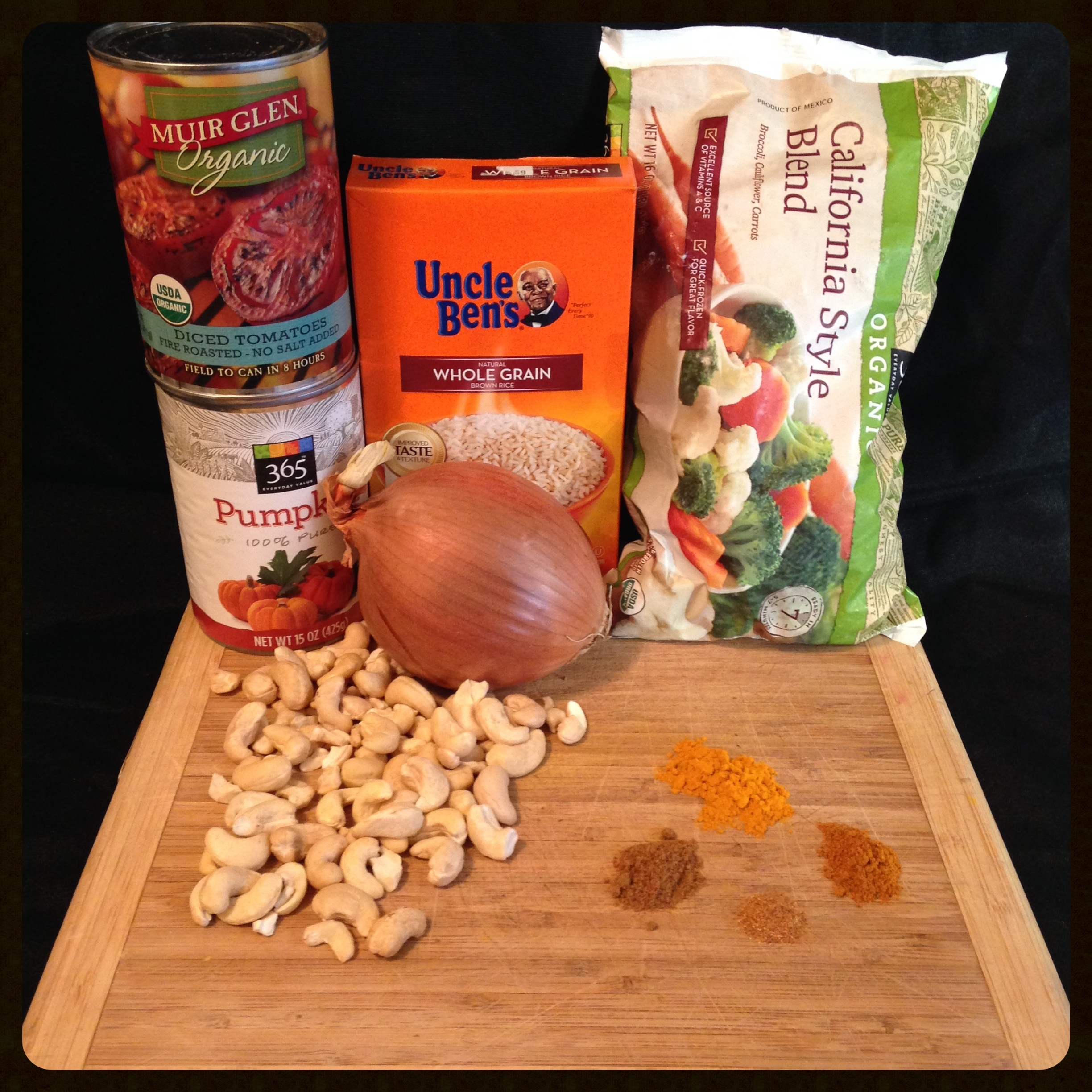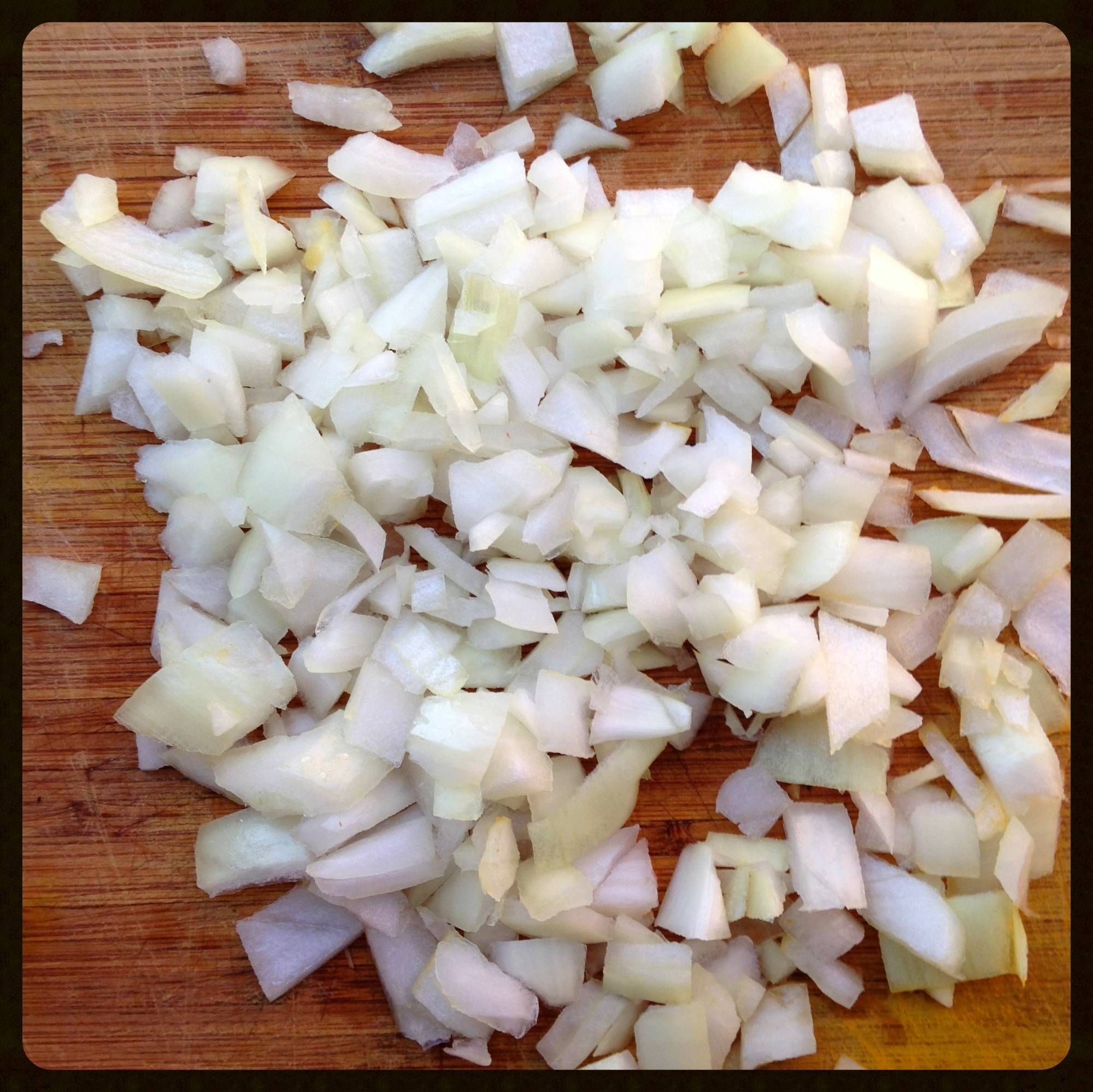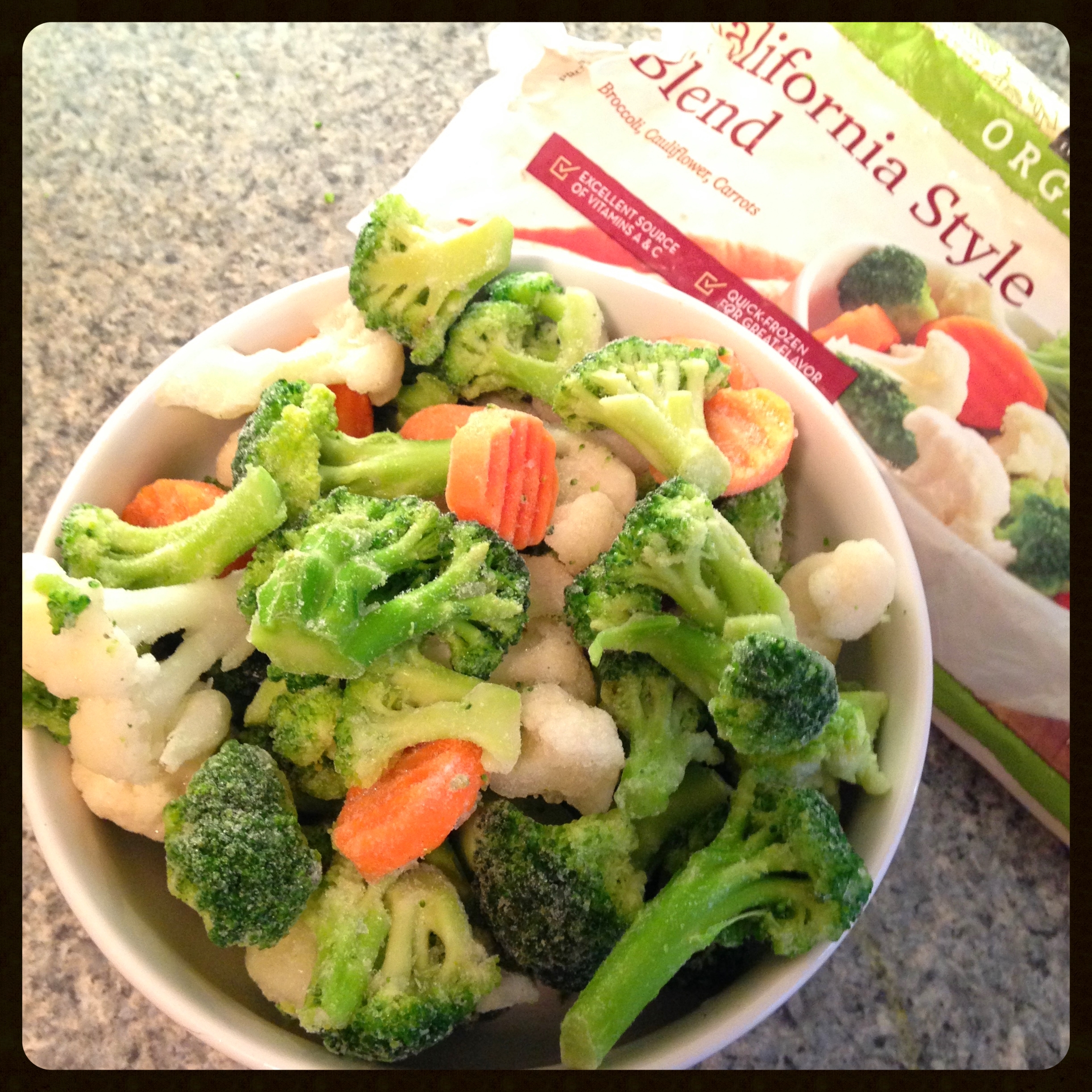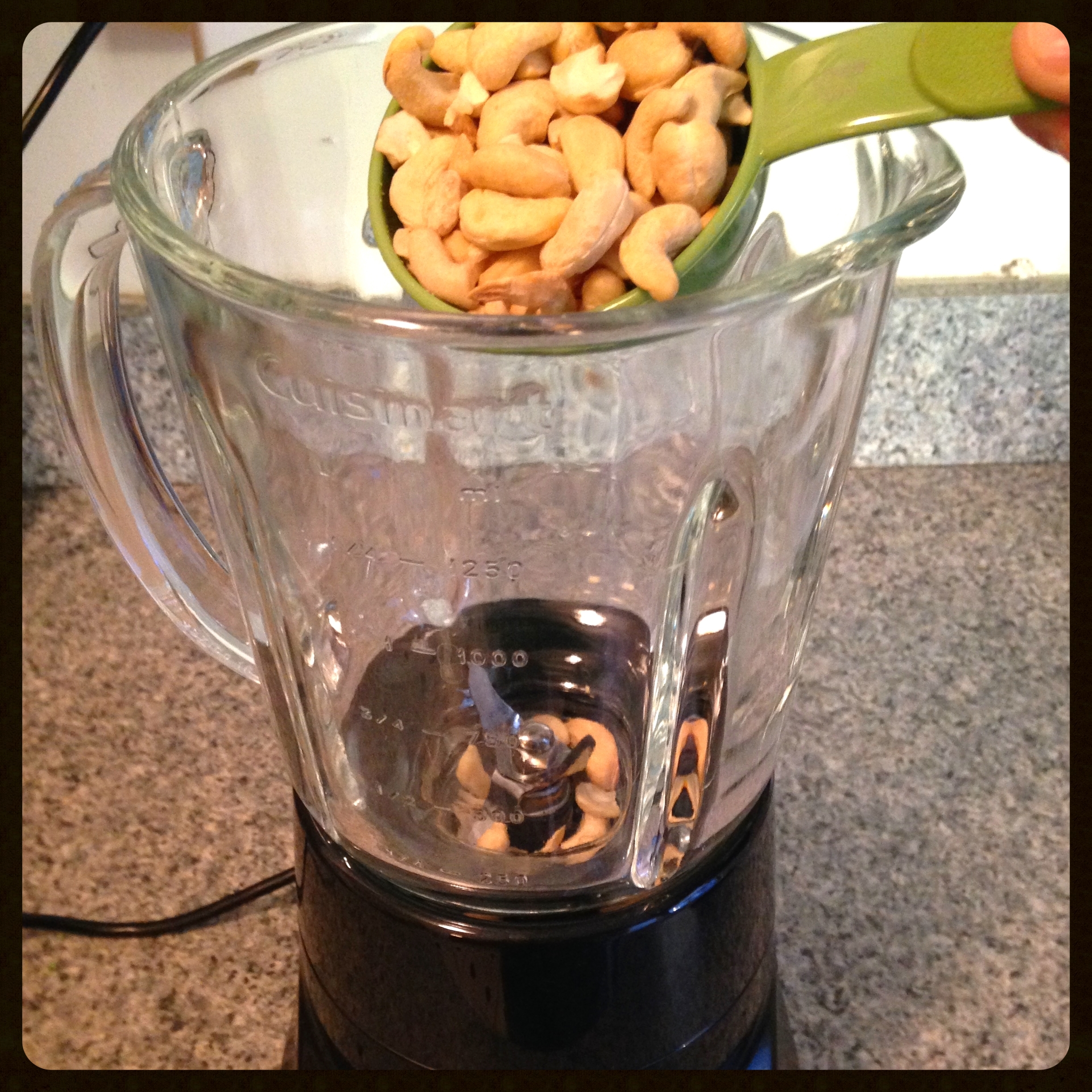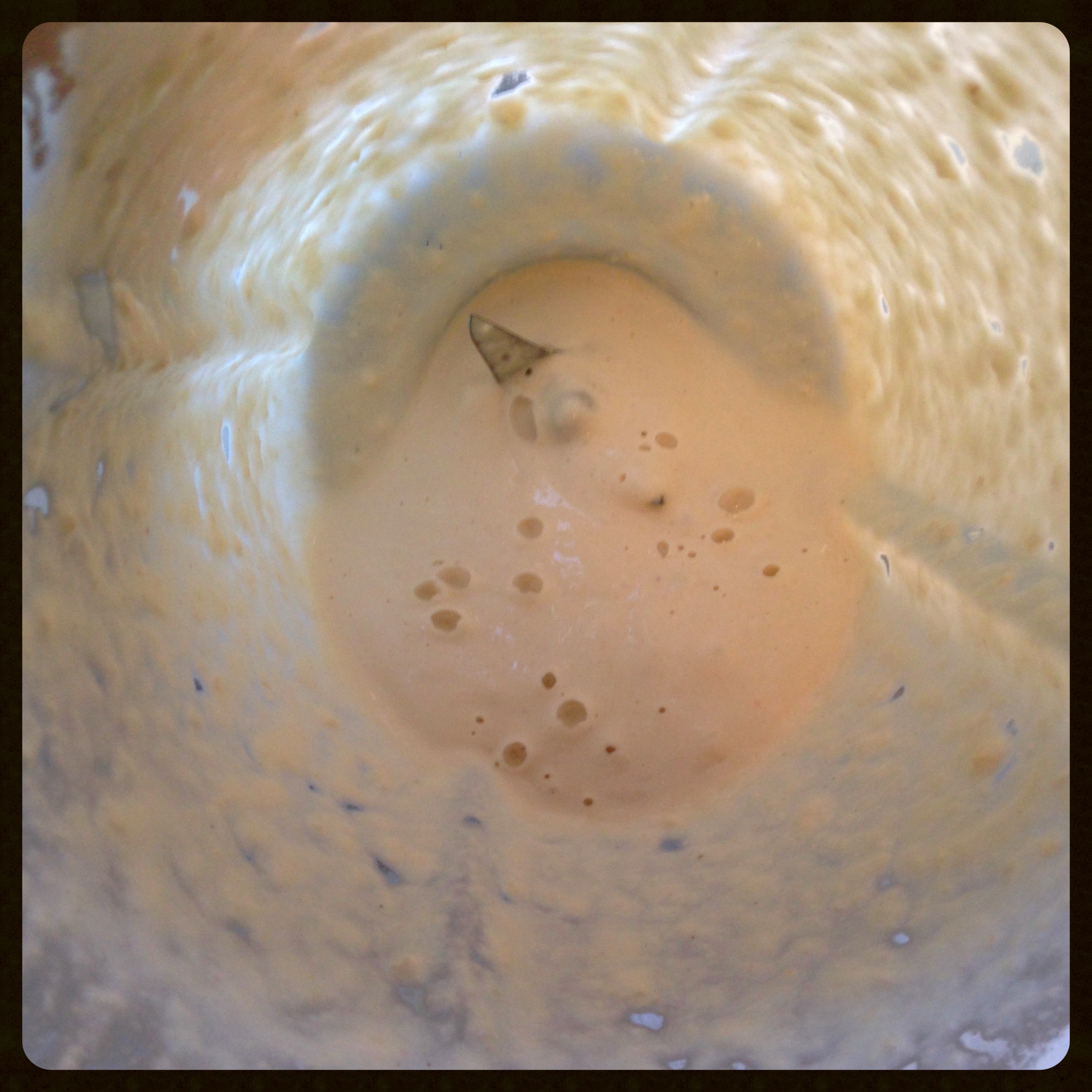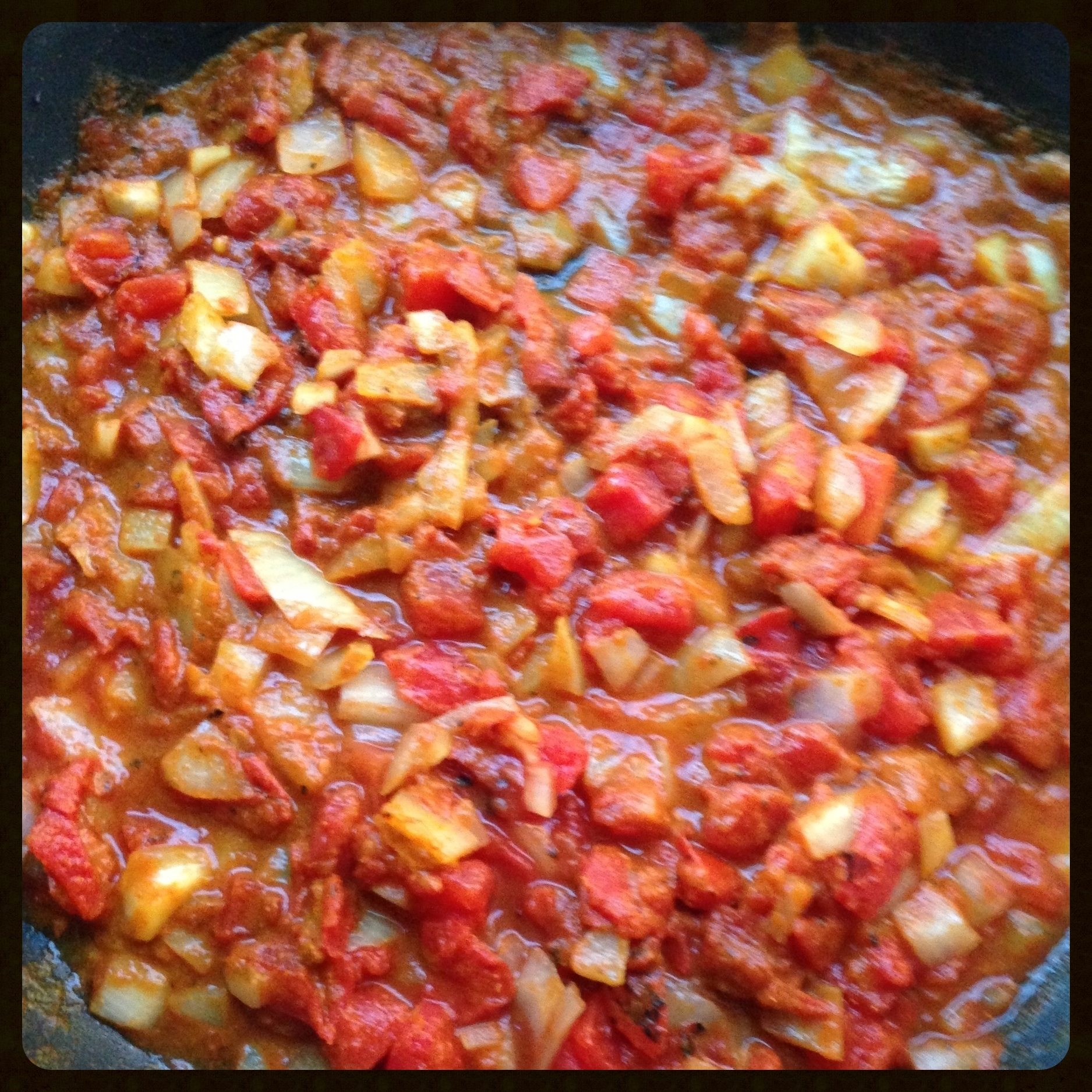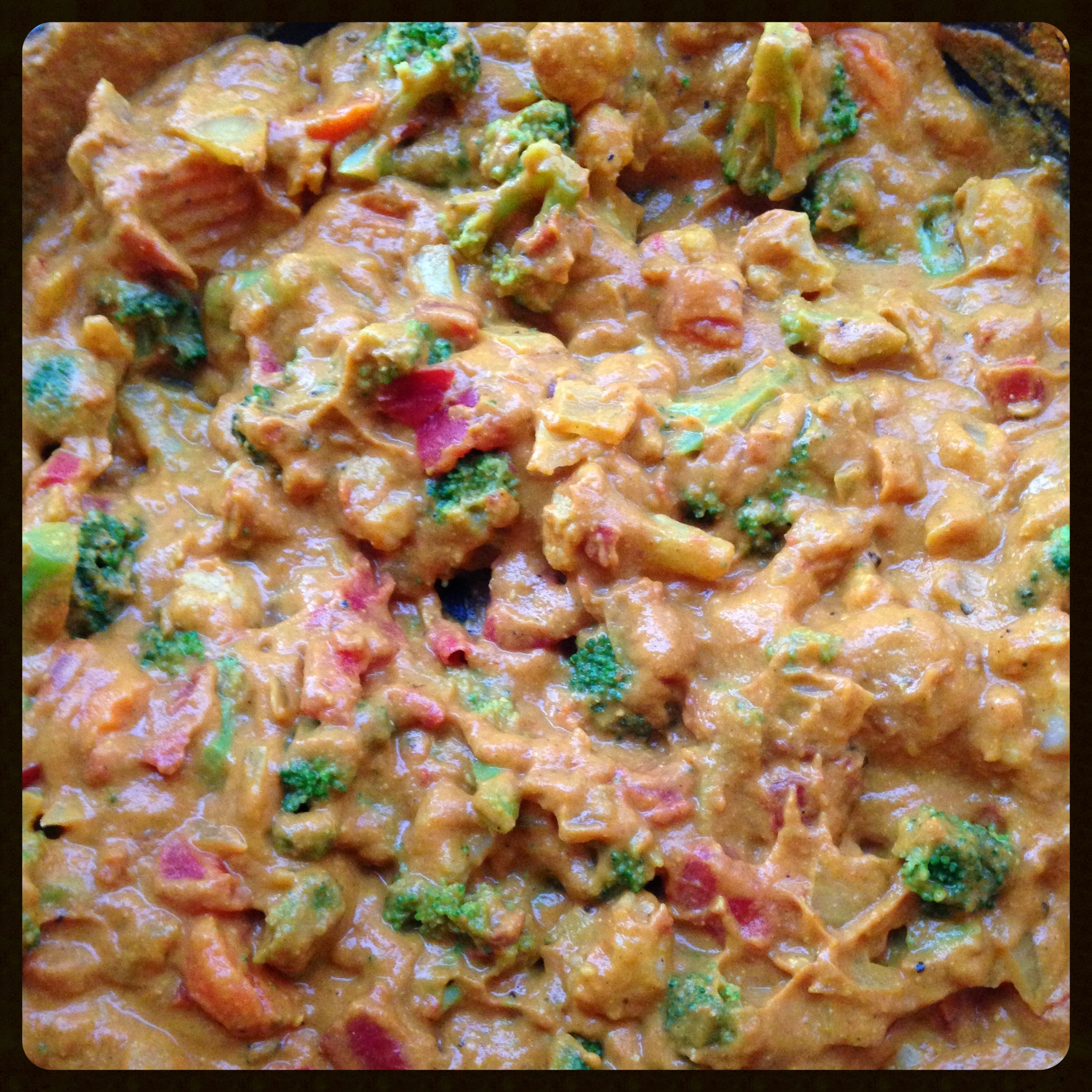Vegan Pumpkin Curry

If I had a dime for every time a client told me, ‘It’s too expensive to eat healthy”, I’d be a very wealthy lady. Unfortunately, if you don’t know where to look, it’s easy to rack up a grocery bill. Been there, done that. Sometimes still do that… But the point is, eating healthy foods doesn’t mean you have to shop only the most expensive, organic brands. You don’t even have to purchase the fresh fruits and veggies if you feel you can’t afford them (although I would always recommend shopping fresh whenever possible). It’s important to keep in mind that produce prices change with the seasons. In the summer, you’ll typically find produce from local farms which makes cost pretty reasonable. Unfortunately, this changes as winter approaches and more produce is brought in from other countries.
Come winter you may find that frozen and canned fruits and veggies are more affordable. I know that may seem like a sacrilegious statement for a dietitian to make… but don’t worry… I think they’ll let me keep my day job. Believe it or not, frozen foods may actually be more nutrient dense than their fresh counterparts! Why? Because fruits and vegetables are picked at their peak then frozen immediately. This preserves their nutritional value. Fresh produce, on the other hand, is picked then transported to a store where it will sits on the shelf. The longer produce sits, the more it degrades and the more nutrients it loses.
Canned food aren’t necessarily more nutritious than fresh but they can be much cheaper. The down side is that they can be very high in sodium. It is important to either buy, “no salt added”, or to rinse the veggies under cool water. Canned fruits can also pack a lot of extra sugar. To avoid this, always purchase the, “packed in water”, version. Canned fruits and veggies may lose some nutrient content in the packaging process but are probably still more nutritious than a frozen pizza.
I could talk about the nutrient differences in fresh versus canned versus frozen, all day long. In the end it isn’t going to matter if you aren’t eating your fruits and veggies! So if cost is a factor, then get what you can afford. You can still make delicious meals like this next creation!
I have made an absolutely delicious pumpkin curry using primarily canned and frozen foods. I started the curry with a super easy cashew cream base. The cashew cream adds a luxurious creamy texture to the pureed pumpkin that is absolutely divine. The nutty pumpkin mixture is the perfect counterpart to the warm curried spices. The dish is also packed full of nutritious veggies which make it feel hearty and healthy. This meal is the perfect comfort food for the fall season.
Ingredients:
- 1 can of pureed pumpkin
- 1 can of stewed tomatoes
- 16 oz bag of mixed vegetables
- 1 cup of raw cashews
- ½ of a yellow onion
- 2 TBS of curry powder
- 1 TBS of cumin
- 1 TSP of turmeric
- Dash of cinnamon
- Salt to taste
Optional Ingredients:
- Brown rice or other grain of choice
Directions:
- Prepare the brown rice according to package directions.
- Roughly dice the onion and set aside.
- Place the vegetables in a microwavable bowl and microwave according to package directions. Place the thawed vegetables in a colander to allow the excess liquid to drain.
- Place the cashews in a blender with 1 cup of water. Puree the mixture for approximately 1 minute or until the mixture forms a thick cream.
- Add the can of pumpkin puree, 1 cup of water and the spices to the cashew cream. Blend until well combined.
- Over medium-high heat, sauté the onions in a large frying pan until fragrant and slightly translucent. Add the can of diced tomato, decrease the temperature to low and cook for another 5 minutes. Add the pumpkin tomato mixture and cook over low heat for another 10 minutes. Add water as needed to obtain the desired consistency.
- Mix the vegetables into the sauce until well coated.
- Serve over brown rice and top wish cashews.
Yield: ~ 4 cups
Nutrition Content:
Serving Size: 1/2 Cup
- Calories: 192
- Protein: 6.3 grams
- Fat: 8.6 grams
- Carbs: 23.1 grams
- Fiber: 4.3 grams

